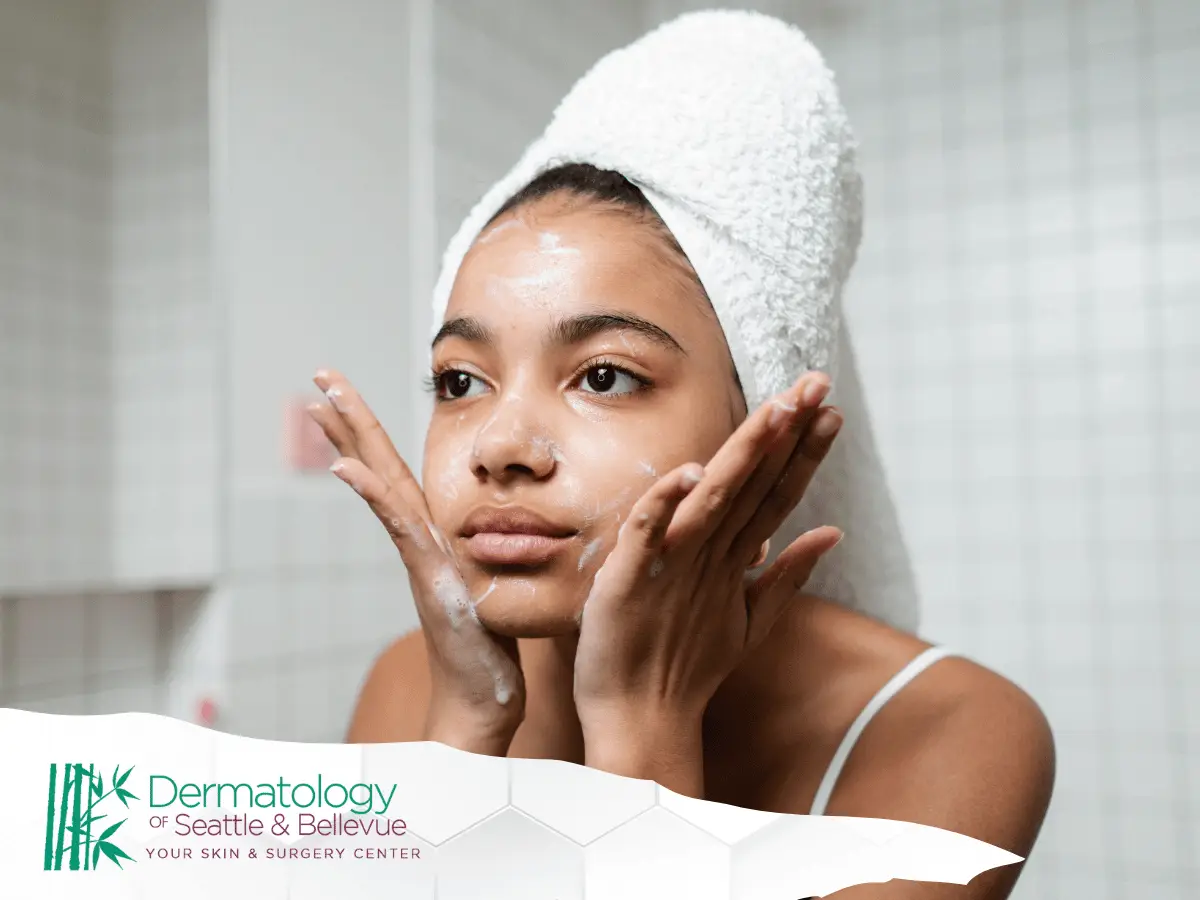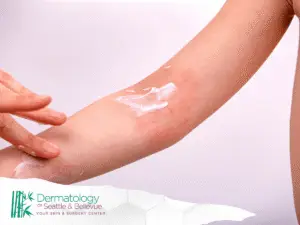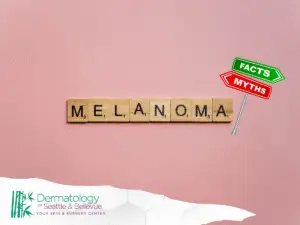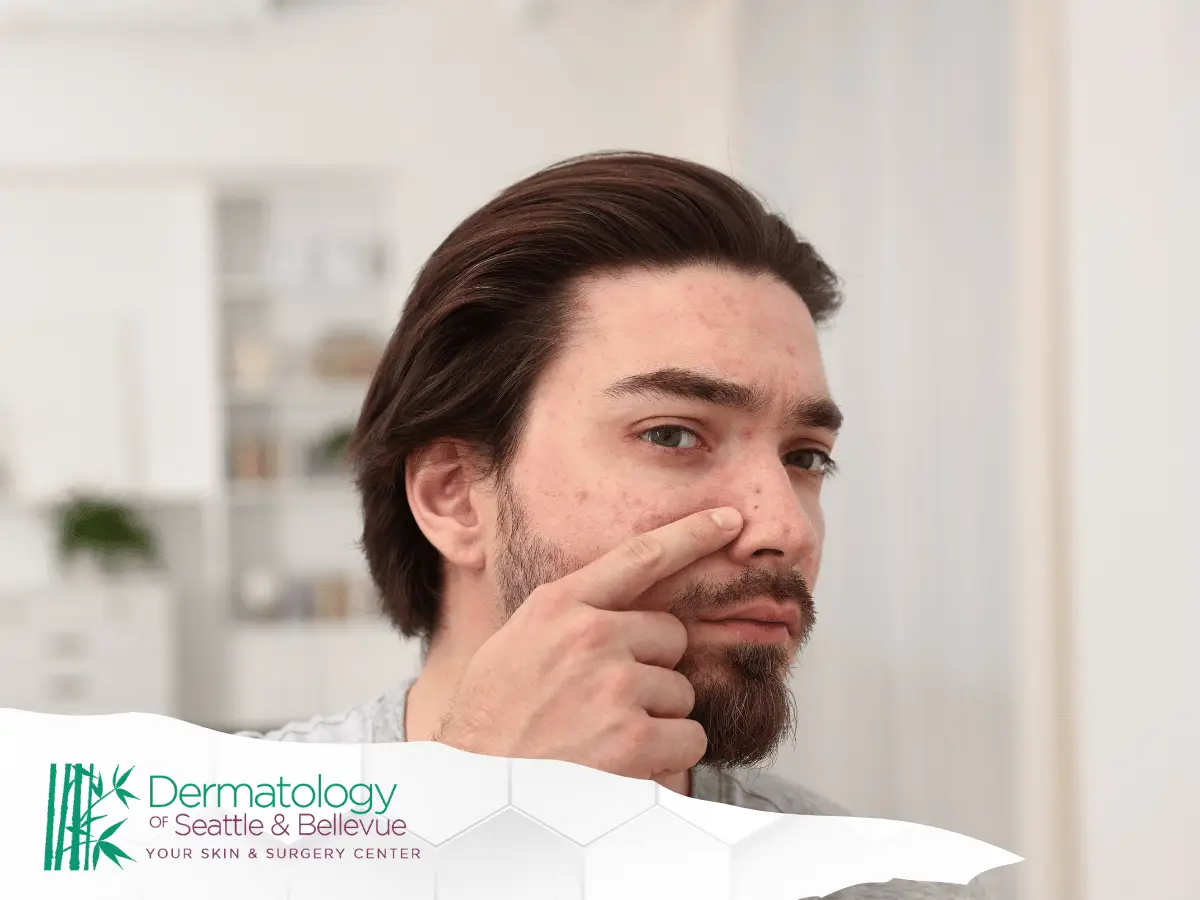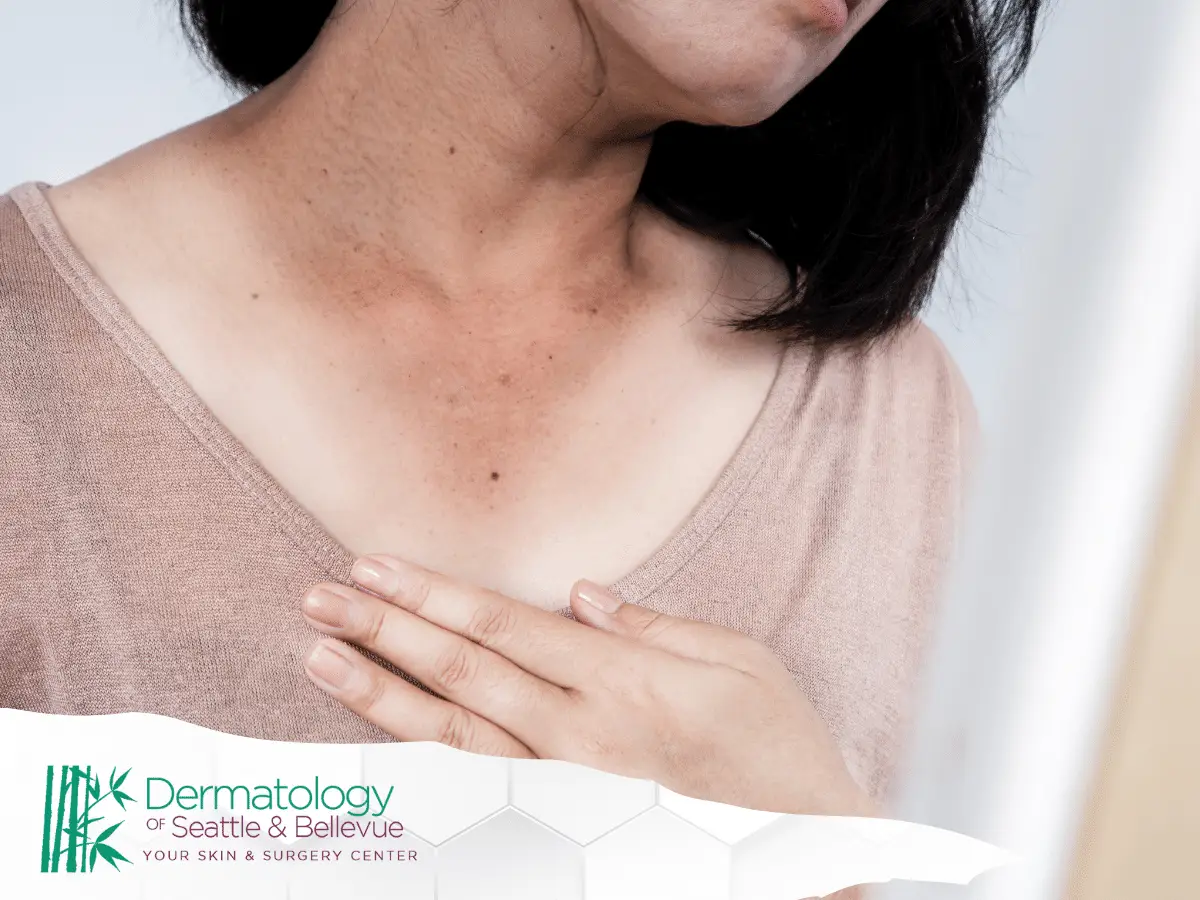Acne is a skin condition that occurs when hair follicles become clogged with oil and dead skin cells. It commonly appears on the face, forehead, chest, upper back, and shoulders. While acne is prevalent during the teenage years, understanding its root causes can help in managing it effectively. The teenage years are characterized by many changes, and acne is one of the most visible ones. It’s important to recognize that acne is a natural part of growing up, and with the right knowledge, its impact can be minimized.
Quick Summary
- Explains teen acne as clogged hair follicles and outlines key causes: puberty-related hormonal changes, stress, diet triggers, genetics, and using unsuitable skincare products.
- Recommends a simple daily skincare routine: gentle cleansing, optional alcohol-free toner, lightweight oil-free moisturizer, and daily broad-spectrum SPF 30+ sunscreen.
- Suggests an evening routine of removing makeup, cleansing again, applying acne treatments like benzoyl peroxide or salicylic acid, and moisturizing to support skin repair.
- Highlights lifestyle habits that can improve skin: balanced diet with fewer sugary/processed foods, adequate hydration, stress management (exercise/meditation/hobbies), and 7–9 hours of sleep.
- Advises seeing a dermatologist if OTC products and lifestyle changes don’t help; options include prescription topicals, oral medications, and procedures like chemical peels or light therapy.
Causes of Teen Acne
- Hormonal Changes: During puberty, hormones called androgens increase, causing oil glands to enlarge and produce more sebum. This excess oil can clog pores and lead to acne. Hormonal fluctuations are a normal part of adolescence, and they can cause the skin’s oil production to go into overdrive. This is why many teenagers experience an increase in acne during puberty.
- Stress: School pressures, social dynamics, and personal challenges can increase stress levels, which may exacerbate acne. Stress triggers the release of hormones that can make the skin more sensitive and reactive. Learning to manage stress through healthy coping mechanisms can help reduce its impact on the skin.
- Diet: While diet is not the sole cause of acne, certain foods can trigger breakouts in some people. High-sugar and high-dairy diets have been associated with increased acne in some studies. It’s beneficial for teens to be mindful of their diet and observe how their skin reacts to different foods. Maintaining a balanced diet can support overall skin health.
- Genetics: If your parents had acne, there’s a higher chance you might experience it too. Genetic predispositions play a significant role in the likelihood and severity of acne. Understanding your family history can provide insight into what you might expect and how to approach treatment.
- Improper Skincare: Using products not suited for your skin type can cause irritation and worsen acne. It’s crucial to select skincare products that are appropriate for your skin’s needs. Consulting with a skincare professional can help in choosing the right products that won’t clog pores or irritate the skin.
Building an Effective Skincare Routine

Developing a daily skincare routine is crucial for managing acne and maintaining healthy skin. A consistent routine helps keep the skin clean, balanced, and less prone to breakouts. Here’s a simple guide to creating an effective regimen:
Morning Routine
- Cleanse: Start your day by washing your face with a gentle cleanser. This removes any oil and dirt accumulated overnight. Look for products labeled “non-comedogenic,” which means they won’t clog pores. A morning cleanse sets the stage for the rest of your skincare routine and prepares your skin for the day ahead.
- Tone: Using a toner can help balance your skin’s pH and remove any leftover impurities. Opt for alcohol-free toners to prevent drying out your skin. Toners can also help tighten pores and refresh your skin, making it feel invigorated and ready for the day.
- Moisturize: Even if you have oily skin, it’s essential to moisturize. Choose a lightweight, oil-free moisturizer that hydrates without adding shine. Moisturizing helps maintain the skin’s barrier and prevents it from overproducing oil in response to dryness.
- Sun Protection: Apply a broad-spectrum sunscreen with at least SPF 30 to protect your skin from harmful UV rays. This is crucial even on cloudy days. Sun protection is vital in preventing damage and maintaining an even skin tone.
Evening Routine
- Remove Makeup: If you wear makeup, ensure you remove it thoroughly before bed. Makeup wipes or micellar water can be effective for this step. Removing makeup ensures that your skin can breathe and regenerate during the night.
- Cleanse: Cleanse your face again to wash away the day’s dirt and oil. An evening cleanse helps remove impurities and sets the foundation for your nighttime treatment products.
- Treat: Apply acne treatment products, such as those containing benzoyl peroxide or salicylic acid, to target and treat breakouts. Consistent use of treatment products can help reduce the frequency and severity of acne.
- Moisturize: Finish with your nighttime moisturizer to keep your skin hydrated. Nighttime moisturizers often contain ingredients that support skin repair and rejuvenation.
Lifestyle Tips for Clearer Skin

Skincare products are only part of the solution. Lifestyle changes can significantly impact your skin’s health. By adopting a holistic approach to skincare, you can support your skin from the inside out.
Eat a Balanced Diet
Incorporate plenty of fruits, vegetables, lean proteins, and whole grains into your meals. These foods are rich in vitamins and antioxidants that promote healthy skin. A balanced diet supports overall health and can contribute to clearer skin. Limit sugary and processed foods, which might trigger acne. Keeping a food diary might help identify any dietary triggers that affect your skin.
Stay Hydrated
Drinking enough water helps flush out toxins and keeps your skin hydrated. Aim for at least eight glasses of water a day. Staying well-hydrated supports the skin’s natural barrier function and helps maintain elasticity. Drinking water can also aid in digestion and circulation, which are important for skin health.
Manage Stress
Find healthy ways to cope with stress, such as exercise, meditation, or hobbies. Regular physical activity can improve circulation and reduce stress, both of which are beneficial for your skin. Mindfulness practices like yoga or journaling can also help manage stress levels. Creating a balanced routine that includes time for relaxation can positively impact your skin.
Get Enough Sleep
Sleep is when your body repairs itself. Ensure you get 7-9 hours of quality sleep each night to help your skin recover and rejuvenate. Sleep plays a critical role in the body’s healing processes and can significantly impact skin appearance. Establishing a bedtime routine can improve sleep quality and support overall well-being.
When to See a Dermatologist
If over-the-counter products and lifestyle changes aren’t improving your acne, it may be time to consult a dermatologist. A professional can provide personalized advice and may prescribe stronger treatments if necessary. Early intervention can prevent acne from worsening and reduce the risk of scarring.
Prescription Treatments
- Topical Treatments: Prescription-strength topical treatments can be more effective than over-the-counter options. These treatments often contain higher concentrations of active ingredients tailored to your skin’s needs.
- Oral Medications: Antibiotics or hormonal treatments may be prescribed to treat more severe cases. Oral medications can address internal causes of acne and are often used when topical treatments are insufficient.
- Procedures: Dermatologists can perform procedures like chemical peels or light therapy to help clear stubborn acne. These treatments can complement your skincare routine and accelerate healing.
Building Confidence Beyond Skin
Remember, acne is a normal part of growing up, and you’re not alone in facing it. Confidence doesn’t solely rely on clear skin. Embrace your uniqueness, focus on your strengths, and surround yourself with supportive friends and family. Building a strong sense of self-worth is crucial during the teenage years.
Positive Mindset
Adopting a positive attitude and practicing self-compassion can improve your self-esteem. Celebrate small victories in your skincare journey and be patient with yourself. A positive mindset can also influence how you react to challenges, including those related to skin health.
Support System
Talk to friends or family members about your feelings. Sometimes, just sharing your concerns can alleviate stress. Having a support system can provide comfort and encouragement during difficult times. Surrounding yourself with understanding and caring people can help reinforce a positive self-image.
Conclusion
The journey to clearer skin is unique for everyone. By understanding the causes of acne and implementing a consistent skincare routine, you can manage breakouts and achieve healthier skin. Remember, patience is key, and taking care of your overall well-being is just as important as the products you use. With the right approach, you can navigate the challenges of teen acne and emerge with confidence and success. Embrace the process, and know that healthy skin and self-confidence are within reach.

